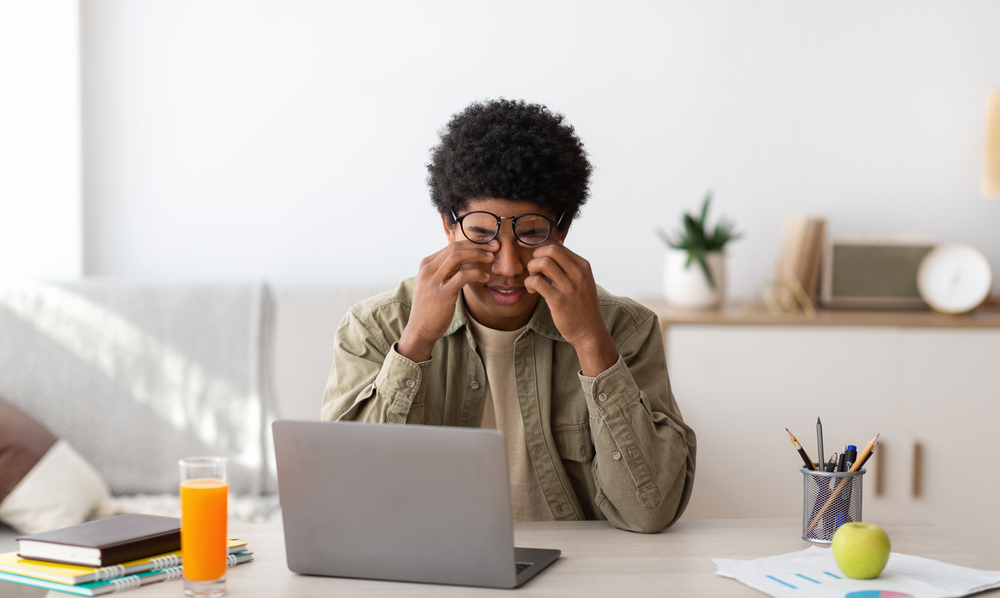Insomnia is the most common problem nowadays throughout the world. It has affected almost 33% of our country. People without Insomnia suffer from sleep problems too. It is important to understand that sleep affects both our mental and physical well being. Sleep plays an important role in good physical and mental health. Sleep deprivation can make a person feel irritable, frustrated and exhausted, but also has long term consequences on health. Sleep deprivation is linked to a lot of health diseases such as diabetes, heart disease and depression. It can also exacerbate the symptoms of many health diseases such as anxiety, depression, bipolar disorder.
DEPRESSION
Lack of sleep can alter one’s mood very significantly. It causes irritability, anger and can lesser your ability to cope up with stress. Chronic sleepiness puts a person at greater risk of depression. Not able to sleep properly and Insomnia can be a symptom of depression, but lack of sleep can also cause depression in a person. Treating Insomnia at an early age can prevent the risk of depression and other psychological health problems.
ANXIETY
Anxiety and sleep deprivation goes together in the same direction, a person not able to sleep well might have anxiety and people who don’t sleep well might develop anxiety.
Sleep issues appears as a risk factor to develop anxiety disorders. A study has shown that lack of sleep was a cause of generalised anxiety disorder among teens from age 9 to 16. Dealing with anxiety can be much more hard when you are tired from lack of chronic sleep disturbances. Lack of sleep is also a very common symptom of PTSD( Post traumatic stress disorder) but can also be very difficult to cope up with it.
BIPOLAR DISORDER
Sleep distress is a very common symptom among people with bipolar disorder. Such issues include disturbed wake cycle, nightmares, etc. sleep disturbances can be a symptom of the disorder but it can also be cause to it. Lack of sleep can also cause episodes of mania and hypomania.
STRESS
Poor or sleep deprivation can make it very difficult for a person to deal with even minor stress. Daily schedule can turn into major reason of frustration. A person might feel short tempered, and frustrated by everything around them. Poor sleep can also turn into a stress itself, that whether you will be able to sleep properly or not.
ADHD( attention deficit hyperactivity disorder)
It a common disorder in children. It is linked with sleep disorders and sleep disturbances can also be a cause to this disorder. Children with ADHD might have a number of sleep related problems such as staying awake till late, trouble in waking up, daytime sleepiness, etc.
A poor sleep plays a very important role in development and maintenance of many health problems. It is said that “you put energy in your bank when you go to sleep”. If a person doesn’t sleep well, they are mostly low on energy, that mean they can’ concentrate on work, and lead to problems like anger and depression. People who do not get enough sleep feel “foggy”. This is because of three reasons;
- Sleep deprivations slow down one’ thought process. It leads to lower alterness and concentration. It becomes very difficult to pay attention and focus on important things in life. This also affects the ability to perform task that require thinking.
- It impairs the memory,“Sleep embeds the things that we have learned and experienced over the course of the day into our short-term memory,” says Avelino Verceles. The different stages of sleep play different roles in putting new information as memories into our head. If we don’t get enough sleep it interferes with this cycle. If a person is sleepy, then tend to forget things very often.
- Lack of sleep makes learning difficult because when you can’t concentrate well so it’s difficult to pick new information and you can’t learn efficiently.
If a person suffers from lack if sleep for a longer period of time, then they should immediately reach out help to avoid long term diseases that are hazardous for their mental and physical health. Some treatments for the same will be;
BEHAVIOURAL AND COGNITIVE STRATEGIES
- Relaxation technique- Practising meditation, breathing exercises and guided imagery can help reduce tension.\
- Cognitive behavioural therapy: Known as CBT, this can help a person identify thought patterns that are contributing to limited sleep
Individuals can also try some at home strategies to cope up with their sleeping disturbances, such as;
-Trying to sleep and wake up at the same time everyday.
-Avoid eating anything before 2-3 hours of going to sleep.
-Regular exercising for 1 hour at least.
-Switch off any electronic devices near you to avoid any distraction.
-Limiting the consumption of caffeine and alcohol.


